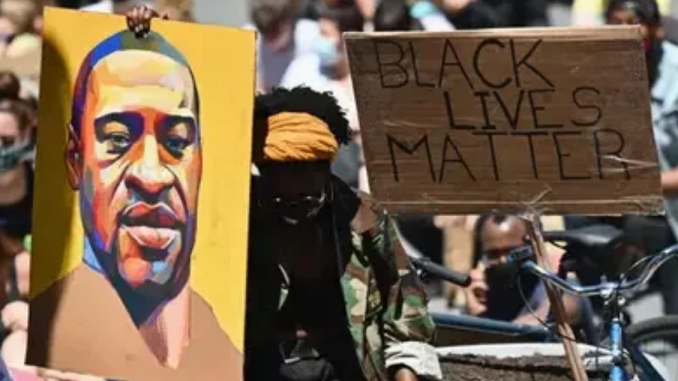
Activists in Minnesota are calling for reparations after former Minneapolis police officer Derek Chauvin was found guilty of murdering George Floyd.
Advocates of police reform celebrated the verdict, which they have described as a step in the right direction toward their goal of holding police officers accountable for killing civilians.
But, according to Insider, “organizers and family members of victims of police violence are careful not to label his conviction as anything more than a step in the direction toward justice.”
In fact, Black Lives Matter Minnesota is now saying that full-scale reparations is the solution needed to atone for what they say has been generational institutionalized racism.
“It’s about direct cash payments,” Trahern Crews, a spokesperson for BLM Minnesota, told Insider. “Reparations is cause for a cessation, which means stop killing them, or stop harming them.”
“That’s not stopping, so we don’t get a chance to heal,” Crews added.
More from Insider:
Chauvin’s guilty conviction gave protesters in Minneapolis a brief moment of respite, Floyd’s family members and activists on the ground said. But convictions represent just one aspect of reparations. “There’s going to be change in the future, and we still have a lot of reparations to make from the past so cases need to be re-opened and we need to re-examine them,” said Floyd’s girlfriend, Courteney Ross.
“This is what justice feels like: gut-wrenching relief, exhaustion. It’s not sweet or satisfying. It’s necessary, important, maybe even historic,” Philonise Floyd, brother to George Floyd, wrote in an op-ed for the Washington Post. “But only with the passage of time will we know if the guilty verdict in the trial of Derek Chauvin is the start of something that will truly change America and the experience of Black Americans.”
Anything else?
While national reparations will likely never happen in the U.S., one Illinois city recently became the first municipality in America to enact a reparations program.
Evanston, Illinois, a city north of Chicago, began the first phase of their reparations program in March.
Overall, the city plans to distribute $10 million over the next 10 years using revenue collected from taxes on recreational marijuana sales.
*story by The Blaze